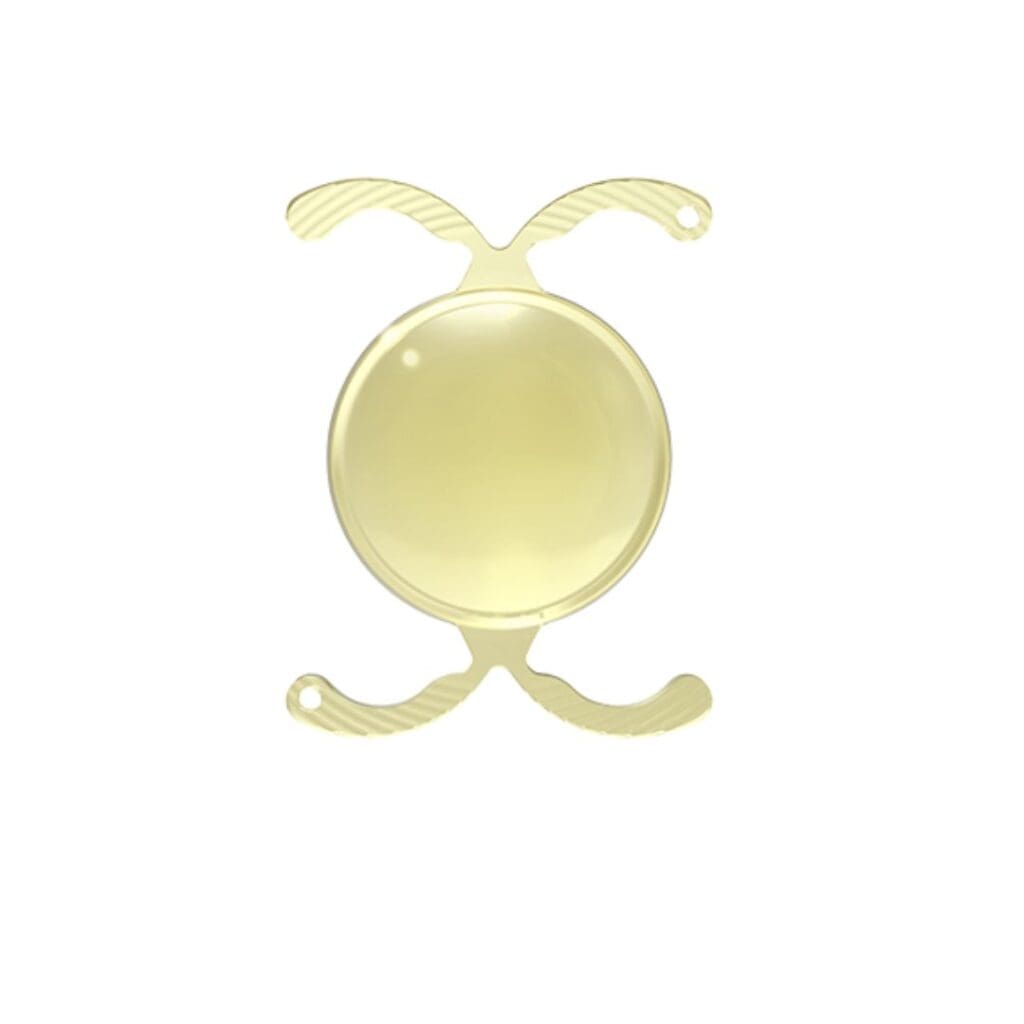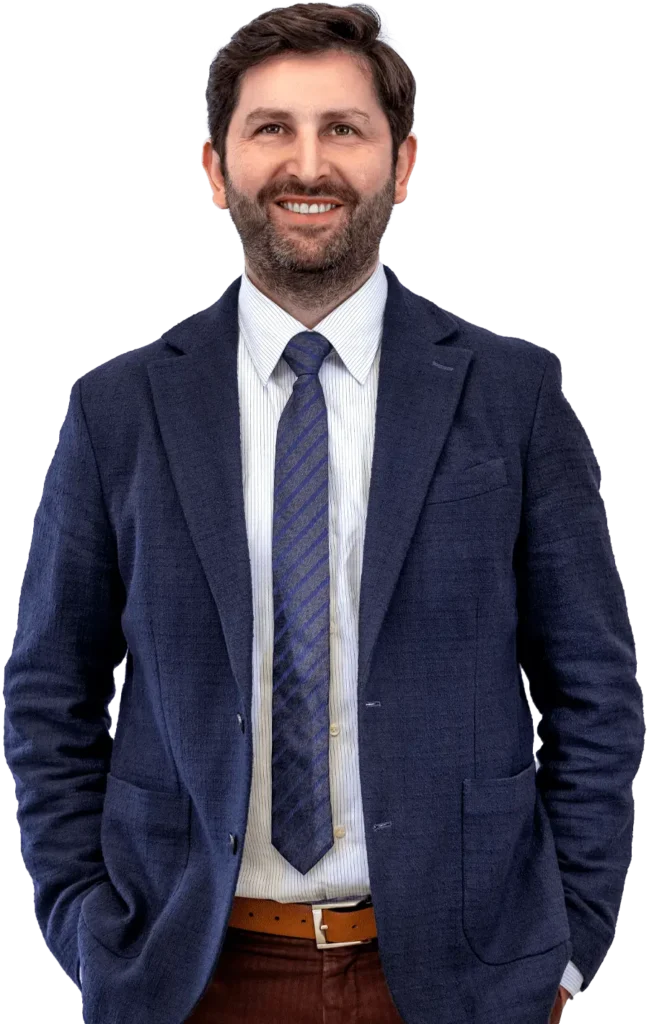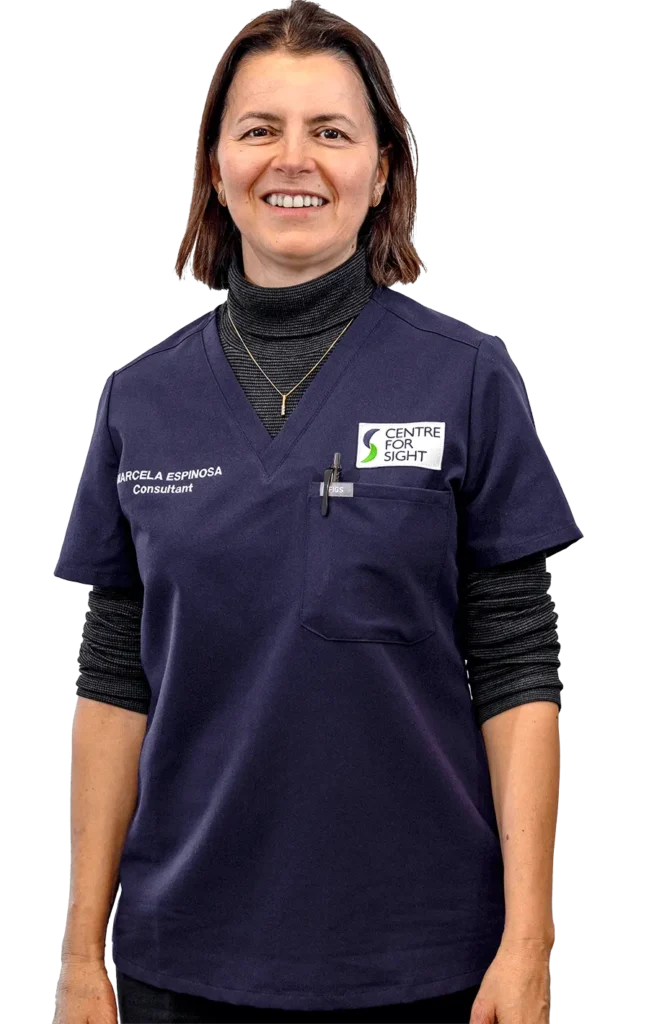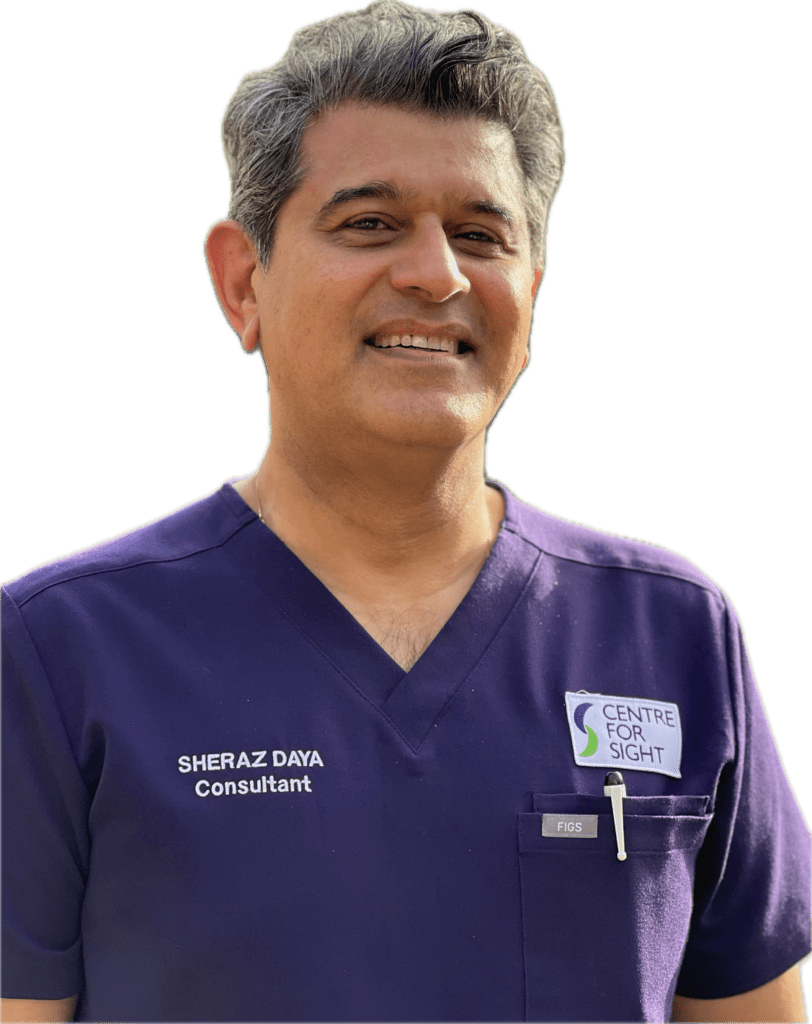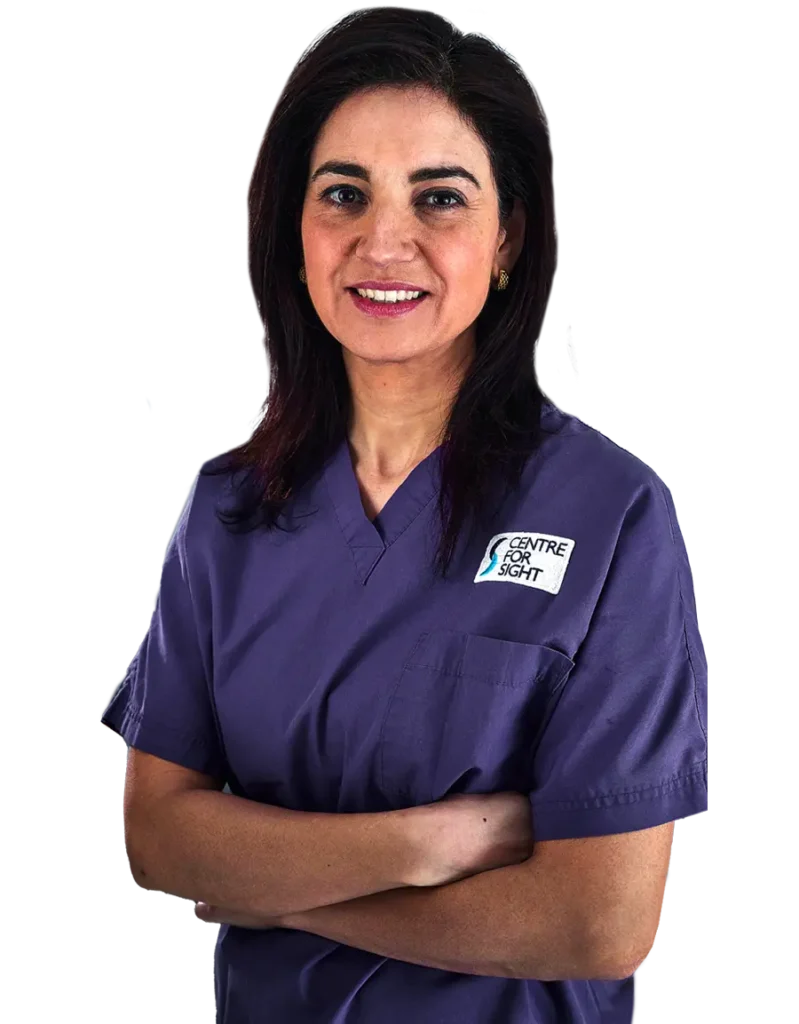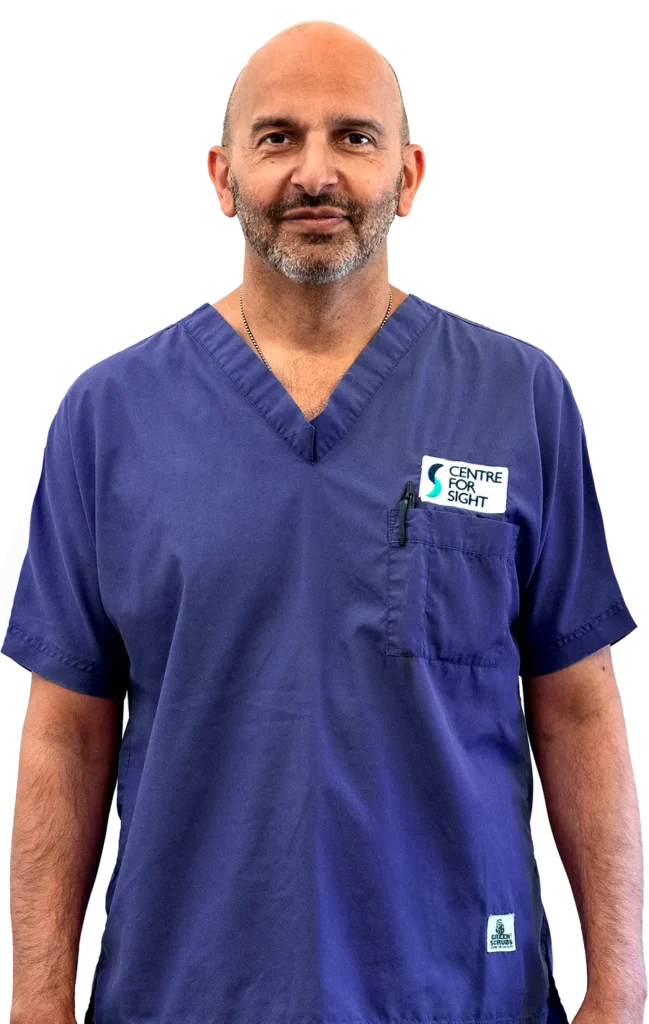Cataracts are a natural part of aging — over time, the clear lens in your eye becomes larger, harder, and less flexible. This makes it difficult to focus, often leading to the need for reading glasses (presbyopia). As the lens continues to harden, it can turn cloudy, causing blurry vision.
Certain factors can increase the risk of developing cataracts, including diabetes, long-term steroid use, or eye injuries.
Symptoms of cataracts develop gradually and may include:
- Blurry or cloudy vision
- Sensitivity to bright lights and glare
- Seeing halos or starbursts around lights
- Difficulty seeing clearly in low light or at night, especially when driving
In the early stages, vision changes might be managed with glasses. However, as cataracts progress, they can significantly impact your daily life — and that’s when cataract surgery becomes the best option to restore your vision.


